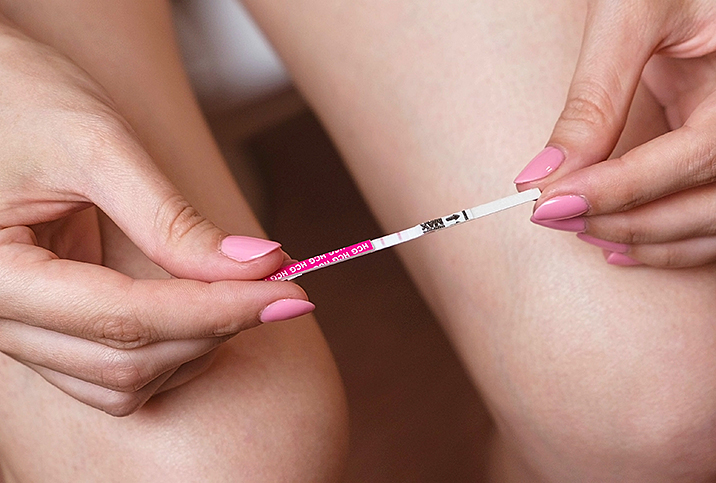How Autoimmune Disorders Can Affect Sexual Function

An autoimmune disorder causes a person's immune system to attack the body rather than germs, which leads to damage on specific parts of the body, depending on the disorder. As many as 5 to 8 percent of people in the U.S. have an autoimmune disorder.
While you may be familiar with notable symptoms of one or more autoimmune conditions, you might not know about the sexual troubles people with autoimmune conditions can face. For reasons unknown, autoimmune diseases are on the rise, and are three times more common in women than in men. Here are the five most common autoimmune conditions, and how they can affect the sexual function of the sufferer.
Crohn's disease
This disorder attacks the digestive tract, leading to chronic inflammation in the gut, which can cause a wide range of symptoms (from mild to severe) when the disease is active. Symptoms of active Crohn's disease include diarrhea, fatigue, abdominal pain, cramping, blood in the stool, mouth sores, decreased appetite, weight loss, anal pain and drainage near the anus, causing fistulas. A 2019 study in the journal Inflammatory Bowel Diseases indicated up to 94 percent of men with a chronic inflammatory bowel condition like Crohn's experience erectile dysfunction (ED).
Type 1 diabetes
Type 1 diabetes occurs when the pancreas doesn't produce enough insulin, resulting in high blood sugar levels, which can damage the body. A 2009 study by the American Diabetes Association found as many as 35 percent of women with type 1 diabetes meet the criteria for sexual dysfunction.
Multiple sclerosis (MS)
Known for attacks on the central nervous system (the brain, spinal cord and optic nerves), multiple sclerosis (MS) can make sexual encounters difficult or impossible due to numbness, pain, limited mobility, weakness, chronic fatigue, bladder and bowel issues. Sexual dysfunction is especially common when numbness has affected the genitals, but due to the neurological aspects of MS, achieving orgasm can also be a problem, affecting up to 90 percent of men and 80 percent of women with MS.
Rheumatoid arthritis (RA)
Rheumatoid arthritis typically attacks the joints in the body, which causes inflammation and swelling. This damage can lead to pain and unsteadiness. A 2019 study from the Journal of Rheumatology found those with RA have a "significantly increased" risk of sexual dysfunction.
Lupus
Lupus can attack the joints, skin, kidneys, blood cells, brain, heart and lungs, causing inflammation that can lead to other ailments. Unlike other autoimmune diseases, lupus is more commonly associated with rashes and sun sensitivity.
Additionally, it potentially affects multiple important aspects of sexual function. For example, body image issues and depression issues are common in lupus patients, leading many women to experience a decline in sexual desire.
Tips for improving sexual function
A 2021 article published in the Annals of Clinical and Medical Case Reports concluded that sexuality is often overlooked in patient treatment when it comes to autoimmune diseases, despite the overwhelming evidence of it being a widespread issue. The article speculates sexual function can be helped through medical interventions such as therapy, medication adjustments and pain management.
While it may not be possible in severe cases, many people with autoimmune diseases still enjoy and maintain a healthy and fulfilling sex life. Those struggling with their sex life should consider the following.
Open communication
Communicating with your partner is crucial when one partner (or both) has limitations caused by an autoimmune disorder. Most autoimmune disorders can cause chronic fatigue, pain, anxiety, increased depression, negative body image and reduced libido. Being able to talk about these issues openly and discuss ways to address them can be key to a successful sexual relationship.
See a sex therapist
Seeing a sex therapist can be a great way to address intimacy issues and sexual dysfunction, and to get tips on having sex with a chronic illness.
Don't always make orgasm the goal
Making climax the focus of every sexual encounter puts too much pressure on both of you. While orgasms are great, so is intimacy. Autoimmune disorders are hard on the body, and an orgasm may not happen as often as it once did or as often as either of you would like. However, even if you can't finish, closeness and pleasure are still wonderful benefits of sex.
Experiment with positions and toys
For conditions where chronic pain, stiffness, weakness and muscle spasms are an issue, experimenting with different sexual positions can be helpful. For conditions that cause a lack of sensation, sex toys (especially ones that vibrate) and arousal gels can really help things along. With topical products, always be sure to test for allergies or reactions first on a small patch of skin.
Lube, lube and more lube
Since vaginal dryness is a huge problem with a lot of autoimmune conditions, investing in a good quality lubricant is going to be a must. Keep in mind that infection is more common with autoimmune disorders, so be wary of products that could upset your body's chemical balance.


















